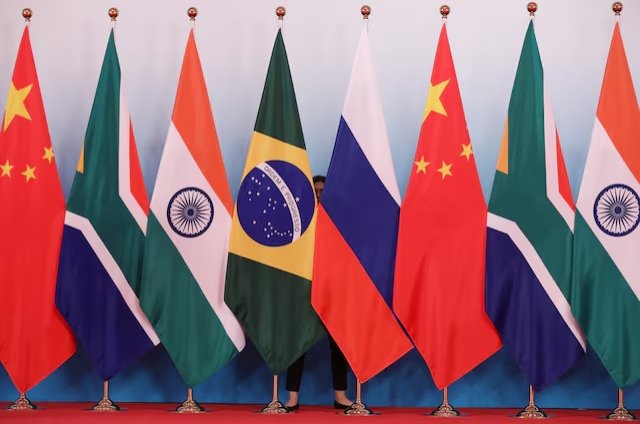Türkiye’s Strategic Pivot: Assessing BRICS Membership Amid Western Relations
Türkiye, a key NATO member, has long navigated tumultuous relations with Western powers, notably the United States, the United Kingdom, and the European Union (EU). Despite significant contributions and efforts, Türkiye’s aspirations for EU membership have yet to materialize, prompting Ankara to explore alternatives to protect its economic interests. One such alternative is strengthening ties with the BRICS nations—Brazil, Russia, India, China, and South Africa.
BRICS represents a substantial shift from Türkiye’s traditional Western alliances. Initially hesitant to join BRICS as a founding member, Türkiye’s economic pressures, including the depreciation of the Turkish lira and rampant inflation, have necessitated a reassessment. These challenges have compounded despite Türkiye’s robust economy driven by tourism, industrial activities, and exports, indicating external economic pressures such as dollar control mechanisms.
Türkiye’s potential membership in BRICS offers a promising avenue to diversify its economic partnerships. The alliance provides access to a vast market and formidable investment opportunities, compelling Türkiye to adopt a balanced and strategic approach to maximize the benefits. This approach involves leveraging the increasing trade and investment potential with BRICS nations while maintaining core relationships with Western allies.
Economic Diversification and Investment Strategy
One of Türkiye’s primary goals is to fortify its economic autonomy and reduce dependency on a single market. To this end, Ankara aims to attract foreign direct investment (FDI) in critical sectors such as technology, manufacturing, and renewable energy. By doing so, Türkiye seeks to harness local talent and develop a more resilient and diversified economy.
Adapting Türkiye’s regulatory framework to align with international best practices is crucial for fostering a business-friendly environment. Simplifying regulations will enable smoother business operations with BRICS countries and ensure compliance with global standards. Political stability, along with national interest alignment, plays a pivotal role in this strategy. Building consensus among political groups, businesses, and other stakeholders will underscore the benefits and address the challenges of deeper integration with BRICS.
Diplomatic Strategy and Geopolitical Considerations
Türkiye’s foreign policy must balance its Eastern and Western relations. A positive and active diplomatic strategy is essential to secure financing for critical infrastructure and development projects, notably through institutions like the BRICS New Development Bank (NDB). Strengthening bilateral ties with BRICS countries is imperative to maximize strategic and economic benefits.
Maintaining equilibrium and avoiding conflicts with Western allies requires clearly defined strategic goals and persistent dialogue. Türkiye’s unique geopolitical position allows it to act as a bridge between East and West, facilitating discussions on global issues such as fair trade practices, climate change, and global security. These dialogues will enhance Türkiye’s influence and fortify its standing on the international stage.
A Vision for Long-term Sustainable Development
Türkiye’s long-term vision encompasses promoting innovation and technological advancement through collaborative research and development projects with BRICS countries. Emphasizing the green economy and long-term economic and environmental sustainability will bolster Türkiye’s growth. By positioning itself as a regional leader, Türkiye can leverage its strategic location and various alliances to drive regional stability and prosperity.
In conclusion, Türkiye’s potential membership in BRICS presents a blend of significant opportunities and challenges. A balanced approach combining economic flexibility, strategic diplomacy, and sustainable development will enable Türkiye to capitalize on BRICS membership. This strategy will safeguard its national interests, sustain strong relations with Western allies, and advance Türkiye’s overarching strategic objectives.
For more information about Türkiye’s shifting alliances and economic strategies, visit Türkiye’s Official Government Website.
